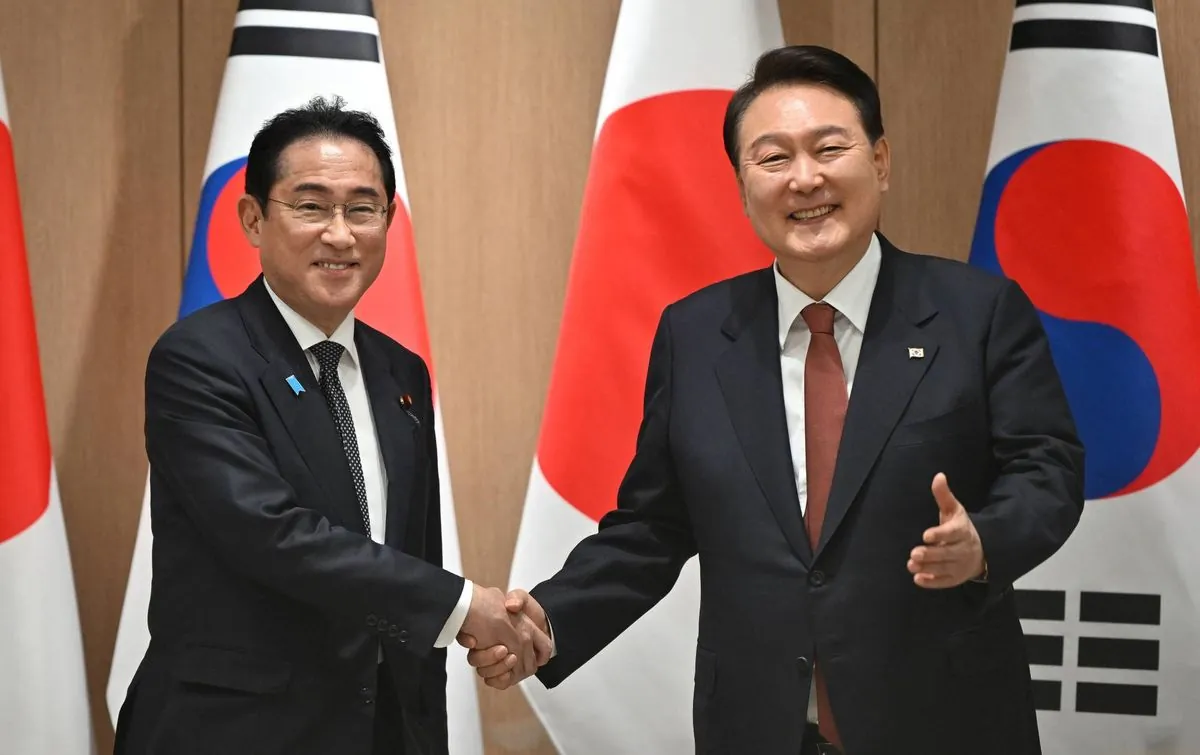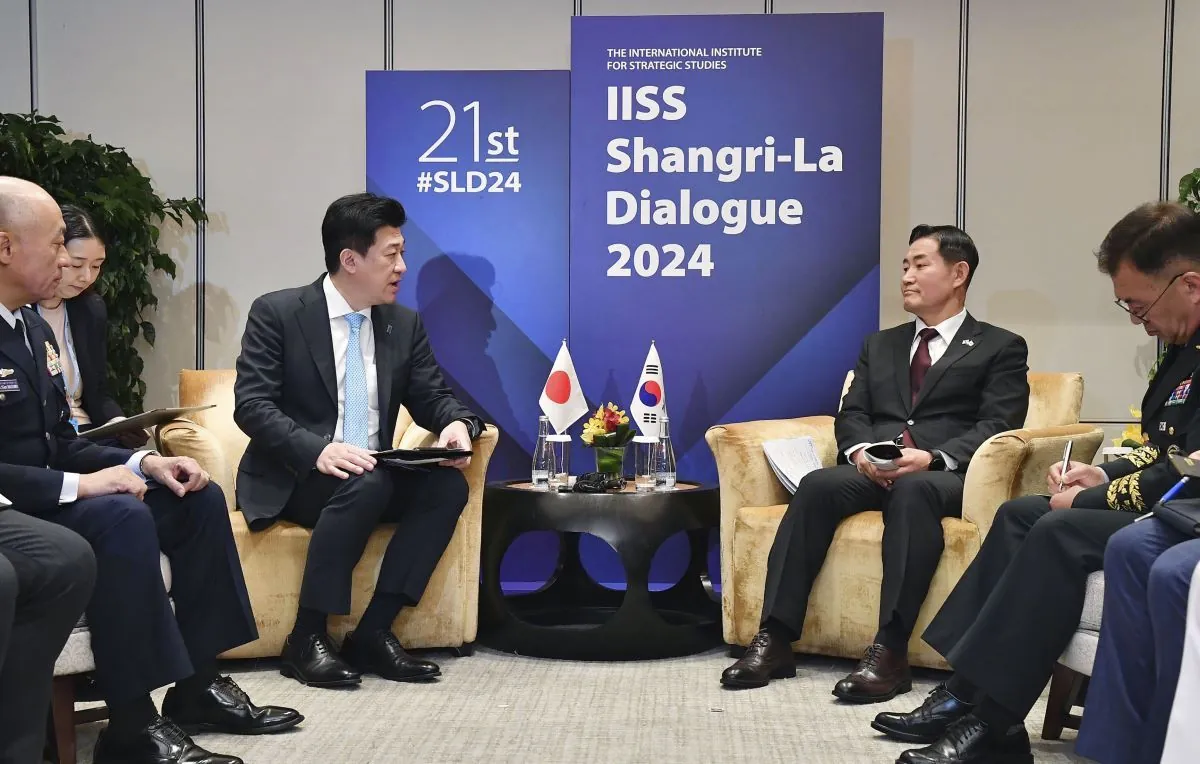Kishida's Final Seoul Visit Aims to Cement Japan-South Korea Ties
Japanese PM Kishida visits Seoul to solidify improved relations with South Korea. The trip, amid leadership changes, focuses on enhancing cooperation and addressing historical issues.

Fumio Kishida, Japan's Prime Minister, is set to make a brief yet significant visit to Seoul on September 6, 2024. This trip marks a crucial moment in the evolving relationship between Japan and South Korea, two nations with a complex historical backdrop.
The visit comes at a time of notable improvement in bilateral relations, largely facilitated by the efforts of Kishida and South Korean President Yoon Suk Yeol. This diplomatic thaw has been actively encouraged by U.S. President Joe Biden, underscoring the strategic importance of cooperation between these East Asian allies.
Japan and South Korea, both members of the G20 and OECD, have made substantial progress in overcoming past grievances stemming from Japan's occupation of Korea from 1910 to 1945. The renewed partnership aims to address shared regional challenges, particularly the security threats posed by North Korea.
During their summit, Kishida and Yoon are expected to review the progress made in bilateral cooperation and explore avenues for further collaboration. This meeting is particularly significant as it may be Kishida's last as Prime Minister, with Japan's Liberal Democratic Party set to elect a new leader on September 27, 2024.
The improved relations between Japan and South Korea have manifested in various forms, including discussions on mutual citizen evacuation protocols and streamlined border procedures for travelers. These initiatives reflect a growing trust and willingness to cooperate on practical matters.

Both nations have recognized the strategic importance of their partnership, especially in the context of regional security. This alignment was evident during the Camp David summit in August 2023, where Kishida, Yoon, and Biden committed to deepening military and economic cooperation.
Despite the positive momentum, challenges remain. The sustainability of this improved relationship will be tested as leadership changes occur in both Japan and the United States. Some analysts question whether the current level of rapport can be maintained under new administrations.
"Both Prime Minister Kishida and President Yoon took on a great deal of personal risk and political risk to move forward the warming of their bilateral ties in ways that prior governments just hadn't been able to accomplish."
It's worth noting that Japan and South Korea have a history of collaboration, having co-hosted the 2002 FIFA World Cup. However, they have also faced ongoing disputes, such as the territorial disagreement over the Liancourt Rocks (Dokdo/Takeshima).
As Kishida arrives in Seoul, he may face protests from citizens who believe Japan has not adequately addressed its wartime past. This underscores the delicate balance required in navigating historical issues while fostering future-oriented relations.
The visit occurs against a backdrop of shared challenges, including aging populations and economic competition in sectors like electronics and automobiles. Both nations are also key participants in regional security initiatives, such as the Six-Party Talks regarding North Korea.
As this diplomatic chapter unfolds, the international community watches closely, recognizing the potential impact of strengthened Japan-South Korea ties on regional stability and prosperity in East Asia.


































